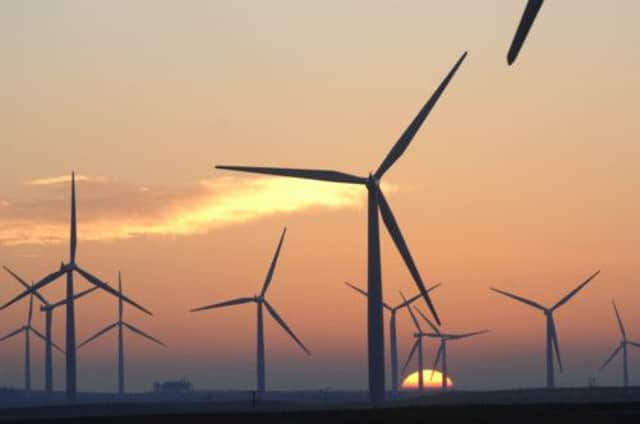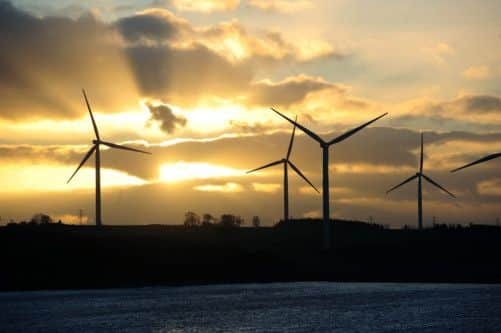Scotland has a big role in sustainable energy


Sustainable energy — energy that is accessible, cleaner and more efficient — powers opportunity. It grows economies. It lights up homes, schools and hospitals. It empowers women and local communities. And it paves a path out of poverty to greater prosperity for all.” (UN Sustainable Energy for All)
The unprecedented growth in material wealth in the last two decades has led to a significant decline in global resources. With the global economy roughly doubling in size in each generation, we face the greatest societal challenge of our times – how can we improve the quality of human life for all while steering the developing world from the worst excesses of Western consumption and unfettered economic growth?
Advertisement
Hide AdAdvertisement
Hide AdNowhere is this challenge better demonstrated than in the need to decarbonise the energy sector and power sustainable development. Access to energy is a pre-requisite of economic and social development because virtually any productive activity needs energy as an input. Although significant advances have been made in promoting energy efficiency and cost reductions of low-carbon technologies, these advances are currently threatened by the extraction and use of “unconventional” oil and gas resources, such as the current “shale gas revolution” and the carbon-intense tar sands oil production.


Energy supply is a major concern
Within UN circles we see energy as the golden thread that connects economic growth, increased social equity, and an environment that allows the world to thrive. Energy supply is today a major concern in regions such as Africa, Asia and Latin America at a time when renewable energy resources in those regions are under-exploited.
The World Bank estimates that approximately one third of the world’s population – over two billion people – have no access to modern energy services. For instance Africa’s population is set to double by 2050 and its energy needs will grow even faster. According to a recent report by International Renewable Energy Agency (IRENA), providing full electricity access to all Africans will require at least a doubling of total electricity production by 2030 from current levels. The continent’s vast untapped renewable energy resources can supply the majority of this future energy demand – if they can be harnessed.
UN secretary-general Ban Ki-moon has launched a global initiative to achieve “Sustainable Energy for All”, with three interlinked objectives by 2030: providing universal access to modern energy services; doubling the global rate of improvement in energy efficiency; and doubling the share of renewable energy in the global energy mix. To that end, the UN General Assembly has declared 2014-2024 to be the “Decade of Sustainable Energy for All”.
Scotland’s opportunity to change the world
Renewable energy has been most successful when the key enablers – investors, producers, users, promoters and regulators – have worked together to overcome barriers. Scotland has been a test-bed for numerous early experiments in community-owned renewable energy schemes and has a pivotal role to play in the Sustainable Energy for All revolution. We have vast wind, wave, and tidal energy resources, a growing low carbon energy industry sector, and a successful model for partnership between government, business and the R&D sector. To mark the launch of the Sustainable Energy for All Decade, CIFAL Scotland, its UN parent agency UNITAR, the University of Strathclyde, and the Scottish Government have co-operated to launch an e-learning course on Renewable Energies for Developing Countries. The course aims to enhance the capacity of local decision makers, energy/sustainable development officers and other personnel to make informed decisions on renewable energy technologies that will meet their own needs or the needs of their countries, communities, villages or neighbourhoods. It aims to provide an overview of clean, secure and sustainable technology options and offers insights into the management of renewable energy projects, from small scale, through to major projects.
Scotland is a small nation, but one with a global duty to reconcile environmental protection with sustainable economic growth. We have a huge opportunity to harness our skills and technology and political will to change the world and deliver a more sustainable energy future for all. With the upcoming UN Decade, now is the time to seize it. lMay East is CEO of CIFAL Scotland, a United Nations Institute for Training and Research sustainability centre based in Edinburgh